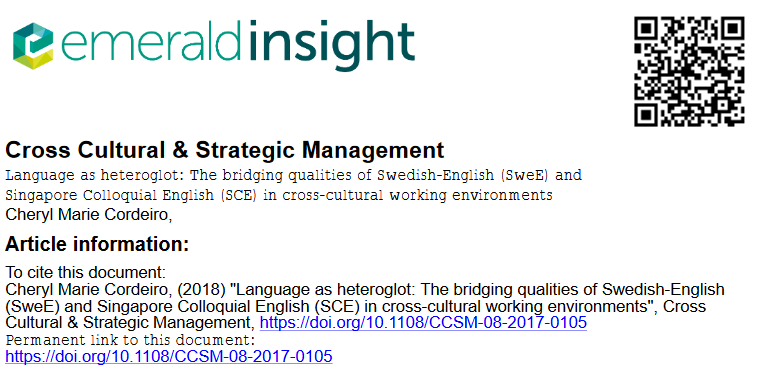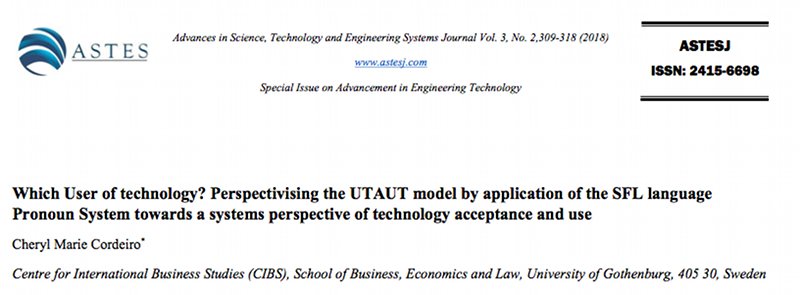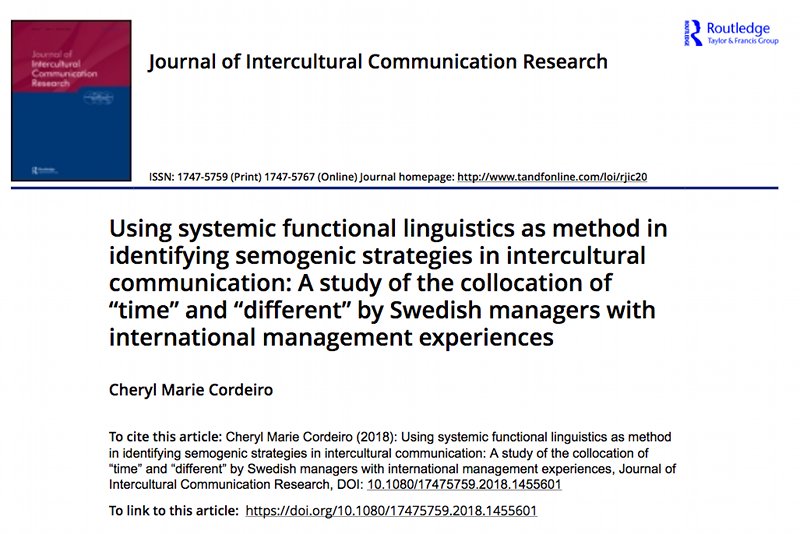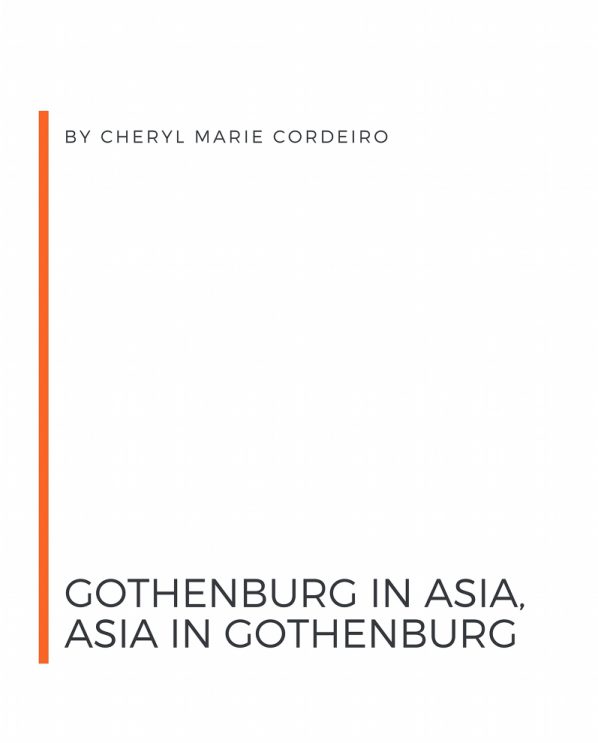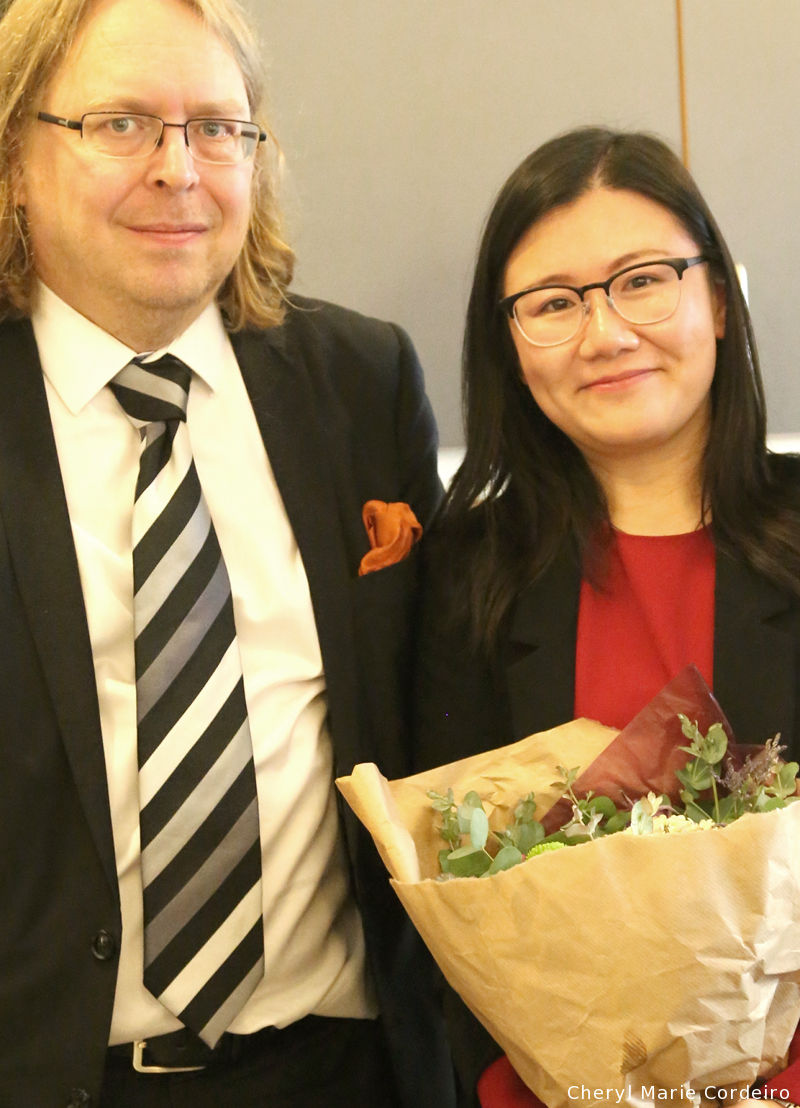Title
Language as heteroglot: The bridging qualities of Swedish-English (SweE) and Singapore Colloquial English (SCE) in cross-cultural working environments
Abstract
Purpose
The purpose of this paper is to reframe the role and function of perceived “bad English” in an international business (IB) context to illustrate that “bad English” could in fact facilitate cross-cultural communication in individuals who do not have English as first language.
Design/methodology/approach
This study uses the Bakhtinian concept of heteroglossia as a theoretical framework. For the method of analysis, applied linguistics is used in particular through the lens of systemic functional linguistics (SFL) as discourse analysis method to analyze transcribed interview texts. Data collection is via long interviews with 33 top level managers in Swedish managed organizations in Singapore offices.
Findings
The study illustrates, through respondent interviews and discourse analysis, that perceived “bad English” could help facilitate communication across cultures in a cross-cultural working context. The study also shows how different individuals, depending on personal experience and cultural background, employ different means to navigate and manage language differences at work.
